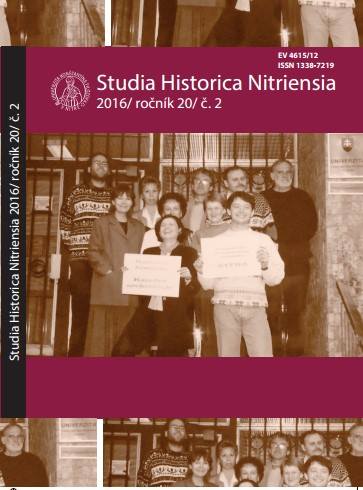Psycho-history: Historical Re-membering as Archetypal Imagining
Psycho-history: Historical Re-membering as Archetypal Imagining
Author(s): Aleš VrbataSubject(s): History
Published by: Univerzita Konštantína Filozofa v Nitre, Filozofická fakulta
Keywords: psyche; depth psychology; rememberign; mythological unconscious; history; imagery;
Summary/Abstract: Even though ancient history was aware of profound link between history and psychology or history and arts, this link, so much apparent in the imagery around Titaness Mnemosyne and her daughters, nine Muses, western modernity substituted myth imagery by the rationality of logos. In addition, this change was accompanied by an attempt to eliminate “soul” and myth from the western thought as unscientific. Initiative of an interdisciplinary connection of history and psychology came from psychologists who started call attention to imagery and collective myths not only for individuals but also for human society. Thus certain segment of historiography started to assume – since 1950s but with increased reception since 1970s and 1980s – depth-historical perspective and validate role of inconscious and irrationality not only in the events of the past and human behaviour and also in historiographical works. This paper introduces three key exemplification of such a tendency: Erich Neumann, Wolfgang Giegerich and the school of cultural complex. Their work is connected with Jung´s thesis of the epistemological primacy of psyche, but also with pioneering projects connecting psychological and historical processes in the history (Freud, Toynbee, Erickson).
Journal: Studia Historica Nitriensia
- Issue Year: 20/2016
- Issue No: 2
- Page Range: 458-481
- Page Count: 24
- Language: English

